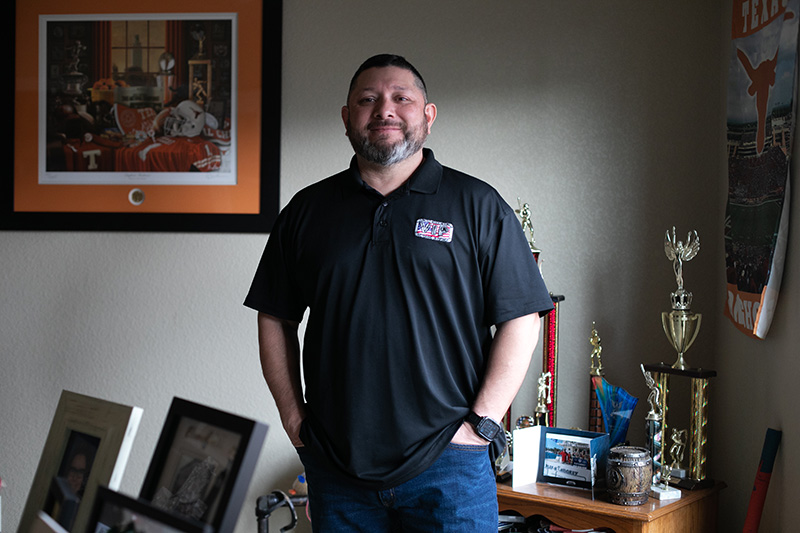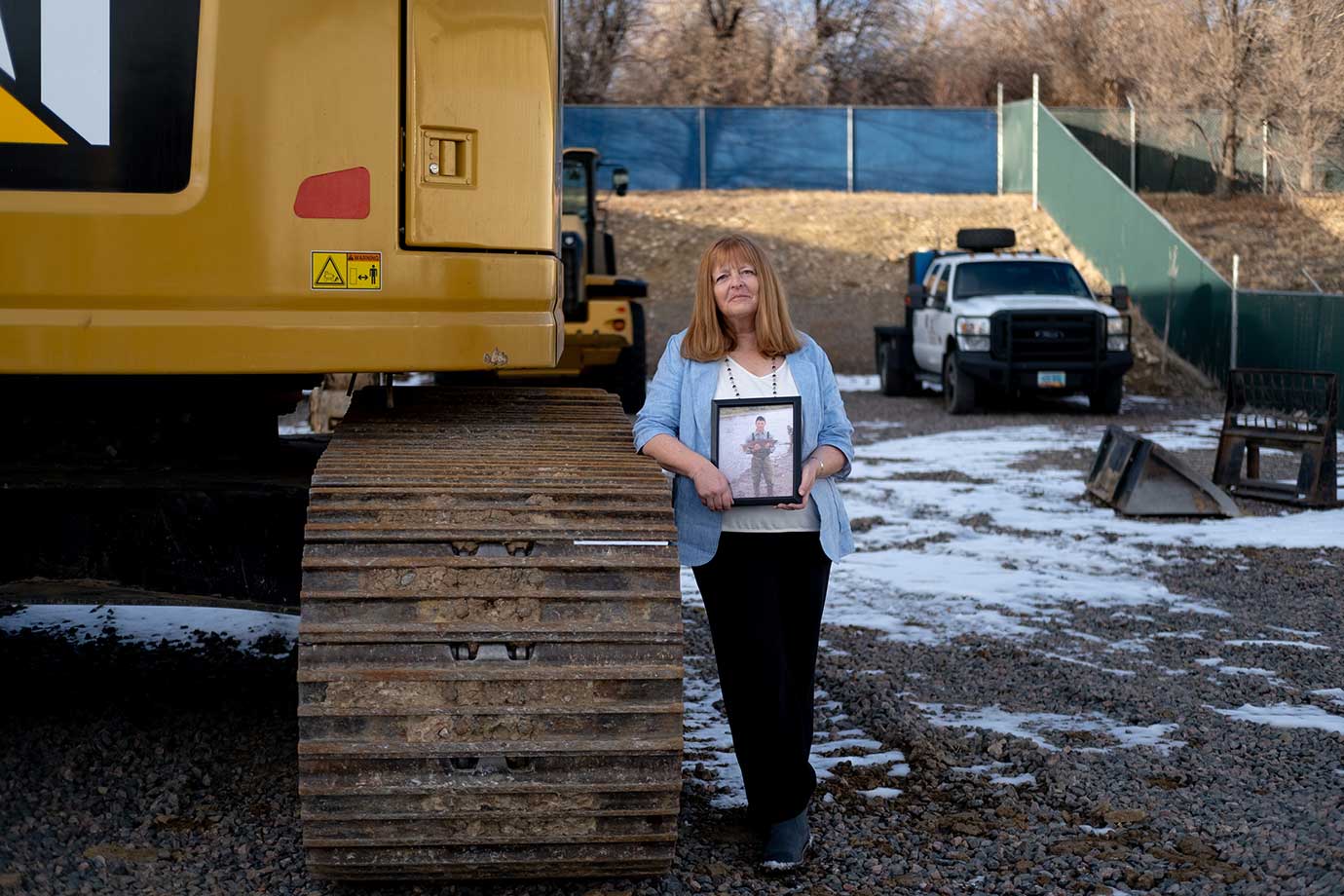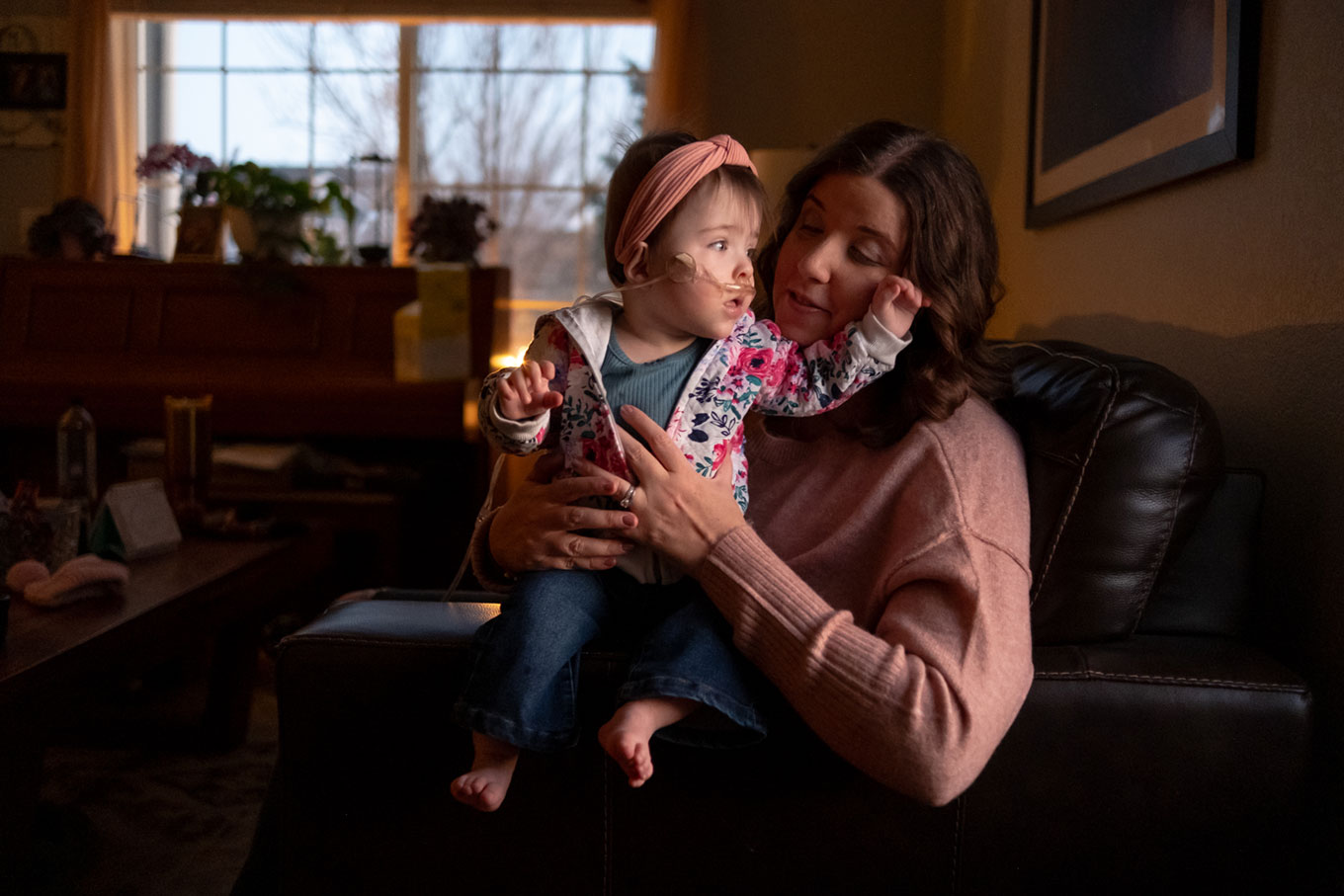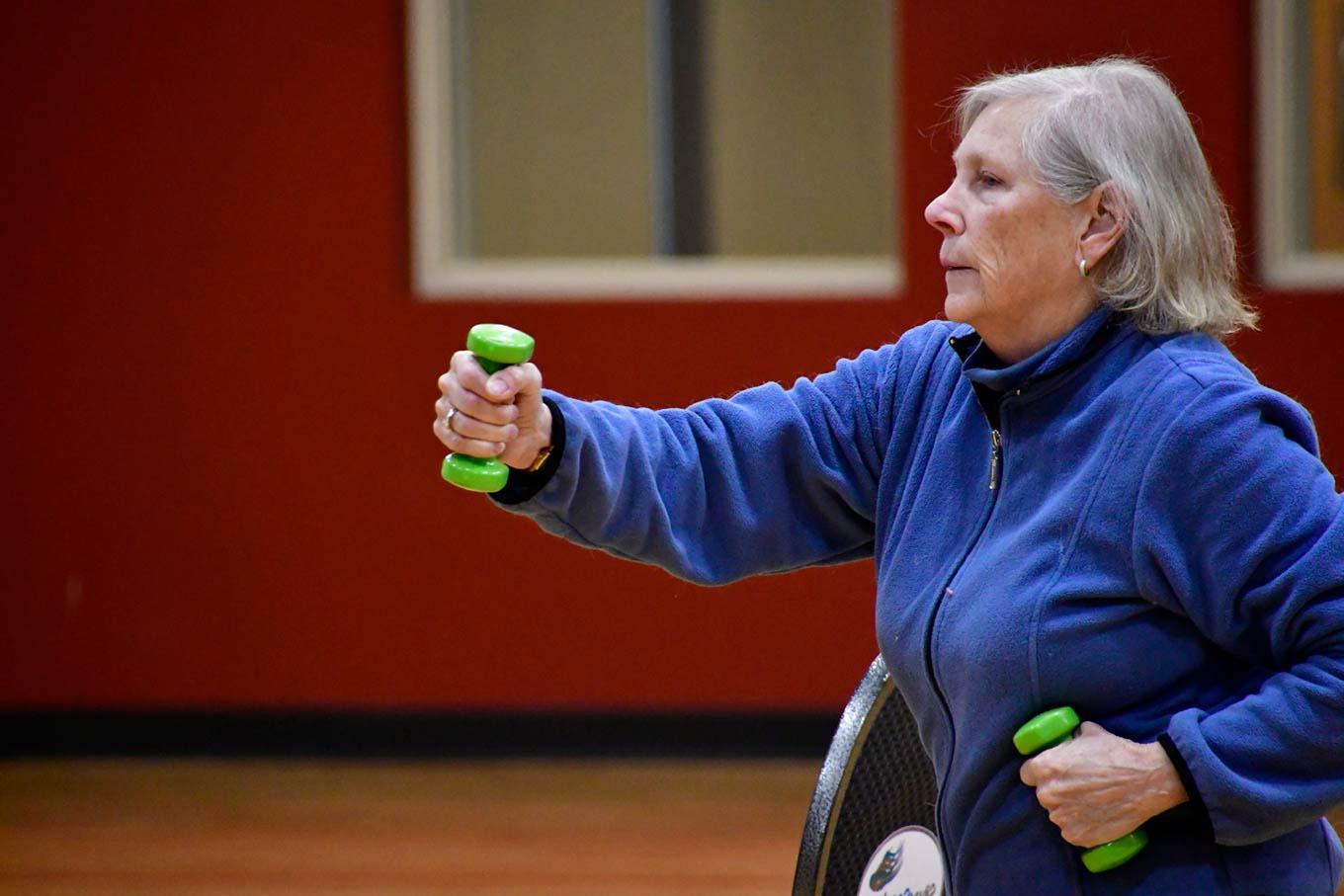Tyler Olson was whip-smart as a kid—“Mister Brainiac,” his mom, Terri Olson, remembered. After studying at Colorado School of Mines, he found a job doing construction at an oil field.
Pulling long hours, Tyler navigated a high-pressure, high-stress environment. A drinking habit he’d started in high school became the medication to cope with it all, said Terri.
By age 24, “depression set in hard,” said Terri, who lives in Jefferson County. “We tried to get him help many, many times, as he tried to get his own help.” But challenges in accessing mental health care—including months-long wait times to see a provider—proved to be insurmountable.
In the summer of 2011, Tyler died by suicide at age 25.
Tyler’s story is too common in Colorado, where suicide rates are the sixth highest in the nation and disproportionately prevalent in the construction industry. Of the 1,370 Coloradan adults who died by suicide in 2021, some 13% (180) worked in the construction industry, making that by far the most affected profession and higher than among unemployed and non-working people.
Between 2017 and 2021, the suicide rate among people working in construction was 70.41 per 100,000 people—nearly double the average rate for all workforces combined (41.35), according to the state Office of Suicide Prevention’s 2023 legislative report.
The majority of people affected are white men, and the impact is disproportionate. Of the 2,137 construction-worker suicide deaths in Colorado between 2004 and 2019, 79% were among non-Hispanic whites, 17% were among Hispanics, and the remaining 4% among other racial and ethnic groups. Colorado’s construction workforce, on the whole, is roughly 52% non-Hispanic white, 44% Hispanic, and 4% other racial and ethnic groups, according to 2019 data analyzed by the Colorado Center on Law & Policy (a Colorado Trust grantee). More than 97% of all construction worker suicide deaths during the 2004-19 period were among men.
The problem is so severe—both in Colorado and across the country—that Americans working in the construction industry are four times more likely to die from suicide than the general population, according to the U.S. Department of Labor. Within the industry, construction workers have a five-fold greater chance of dying from suicide than from a work-related injury, per 2018 data analyzed by the Centers for Disease Control and Prevention (CDC).
“Suicide is complex,” said Lena Heilmann, PhD, MNM, director of the Colorado Department of Public Health and Environment’s Office of Suicide Prevention. “There’s never one reason people feel suicidal, attempt suicide, or die by suicide.”
Still, certain realities about the industry help explain the prevalence of mental health issues. For one, construction is a male-dominated industry, said Sally Spencer-Thomas, PsyD, a Colorado-based clinical psychologist, suicide prevention expert and president of United Suicide Survivors International. Roughly 90% of the workforce is male, according to the U.S. Bureau of Labor Statistics, and across all industries, men are much more likely to die by suicide than women—nearly 80% of Americans who died by suicide in 2021 were male, according to CDC data.
But that doesn’t fully explain the phenomenon since suicide rates in the construction industry are still higher than in other male-dominated sectors, Spencer-Thomas said, like agriculture or manufacturing.
Nick Williams, director of operations at Absolute Caulking & Waterproofing, Inc., a commercial contractor in the Denver metro area, pointed to contributors like the seasonality of construction work and the resulting financial instability.
“We’re not really guaranteed our next paycheck,” he said. “That provides a lot of upheaval in someone’s personal life.”
Moreover, the pressure to stay on budget and schedule creates a “very high-stress environment,” said Mohammed Hashem Mehaney, PhD, an associate professor in the construction management department at Colorado State University. Those stressors are compounded by current labor shortages that cause existing employees to work longer, harder hours.
“Your social life can be affected,” Hashem Mehaney said. “And with all of this pressure, definitely you’ll have some anxiety sometimes, if not a lot of times.”
Additionally, the inherent danger of construction work can contribute to stress and anxiety, Williams said. And when that danger results in injury, access to opioid prescriptions can morph substance use into substance misuse. Some 14.3% of construction workers struggle with substance use disorder, compared to 9.5% of all full-time workers, according to a 2015 report by the U.S. Substance Abuse and Mental Health Services Administration. Substance use can be a contributing factor to suicide, said Heilmann.
Moreover, an industry culture of normalized alcohol use—at events or conferences, and at home as a stress coping mechanism—can further exacerbate the issue, Williams said. The same 2015 paper found that 16.5% of people working in construction reported heavy alcohol use (defined as having five or more drinks on the same occasion), nearly double the rate of all full-time workers (8.7%). Research shows people with alcohol use disorders have a greater risk of suicide compared to the general population.
Then there’s what Williams refers to as the “tough guy syndrome,” where some workers are reticent to admit they are struggling with anxiety, depression, substance use or suicidal ideation. That’s the mentality Tyler wrestled with, Terri Olson said, and it can make those who are vulnerable less likely to seek help.
Jose Ballejo, a pipe fitter who works in Fort Carson and lives just north in Colorado Springs, can relate. After serving in the U.S. Army, Ballejo found the transition from military life to construction seamless, given the similar cultures.
“We call it a ‘macho man environment,’” he said, describing the norm in construction of working long hours in challenging conditions. There’s a belief, he said, that “we ain’t got time to talk about feelings.”

Jose Ballejo works in Fort Carson as a lead instructor with the United Association Veterans in Piping Program. He has received training in mental health peer support, and has relied upon it to help other construction industry workers. Photo by Parker Seibold / Special to The Colorado Trust
Data supports the pervasiveness of this ideology. According to a 2021 construction industry survey conducted by the American Psychiatric Association Foundation’s Center for Workplace Mental Health, only 18% of respondents said they would openly discuss their mental health with co-workers.
Another likely contributor is the frequent travel common in the industry—workers must go where the jobs are, which can mean long commutes or periodic uprooting to move closer to a job site. A key protective factor against suicide is feeling connected to family, work and community, so workforces that move people around a lot can increase the risk, according to Heilmann.
In sum, “it’s really kind of a perfect storm of risk factors,” Spencer-Thomas said.
However, among the general public, awareness is low of the mental health challenges construction workers face. That’s partly because despite the work many perform to build and repair critical infrastructure—like highways, schools or hospitals—construction workers are not heralded as heroes in the way that first responders and military members are, Spencer-Thomas said. Instead, “they’re often strategically hidden from the general public’s view,” she said, pointing to the fact that construction often happens at night so it’s “not in the way” and is often regarded as a messy hindrance.
Even within the construction industry, awareness of mental health struggles can be low due to the tendency among people to downplay their challenges. Spencer-Thomas describes the typical mindset as “Don’t worry about me, I’ve got it”—which can make suicides, when they occur, all the more shocking.
When Hashem Mehaney first learned some five years ago about the prevalence of mental health issues in the industry, he was floored. A former construction worker, Hashem Mehaney knew those in the field faced challenges, but seeing how pervasive the issue was astounded him. His next thought: “What are we doing about this?”
In digging into the data, Hashem Mehaney learned that information on construction-industry mental health was scant. So, he applied for and was awarded a grant that has allowed him to study the topic for the past three years.
Obtaining quality data has proved challenging. “This might have been the most frustrating thing that I have ever had to deal with in research,” Hashem Mehaney said. He learned many construction companies don’t collect mental health-related data, and those that do are hesitant to share it due to privacy concerns. So far, he’s obtained just 10% to 20% of the data he expected.
From what he’s been able to glean, Hashem Mehaney learned that to help combat the issue, construction companies need to not only create and implement mental health support programs for their employees but demonstrate through leadership that the subject is no longer taboo.
“Your environment has to change,” he said. “If you want people to tell you something, they shouldn’t be scared of losing their job” or facing judgment. He points to peer support programs as one effective prevention strategy.
Ballejo, the pipe fitter working in Fort Carson, has seen the impact of peer support firsthand. As a lead instructor with the United Association Veterans in Piping Program, Ballejo teaches military personnel transitioning into civilian life the skills they need to start a career in the industry.
In 2021, Ballejo was trained in a mental health peer-support program where he learned how to actively listen, ask open-ended questions, and connect those struggling with resources. Before the training, if he noticed a student erring in their work, he’d typically criticize their performance. But now, he uses those instances as an opportunity to check in.
Ballejo recalled a recent instance where he noticed a student acting unusually quiet. Through gentle probing, Ballejo learned the student just found out his brother had cancer. Ballejo asked if the student wanted to talk to somebody and the student mentioned speaking with his chaplain might help.
“I told him, ‘You go do what you have to do,’” Ballejo recalled. When the student returned, his demeanor had shifted entirely. “You could see that just talking to the chaplain had lifted that weight off his shoulders,” Ballejo said. “He got the help he needed.”
Efforts to build awareness and support for mental health are also underway at the Associated General Contractors (AGC) of Colorado, a professional association for over 650 commercial building companies. In 2021, AGC formed a mental health working group of about 35 industry members and partners who meet every six weeks.
Williams, who is part of the working group, said their goal, in part, is to vet new mental health resources that could benefit the AGC membership. The task force recently published a 27-page report on mental health among construction workers that recommended the rollout of a pilot program with Youturn Health, an online peer counseling training tool, as a resource to members.
Terri Olson is now an AGC board member and the vice president of OE Construction Corporation, a civil contractor in the Denver metro area. OE participated in the Youturn Health pilot program, and once the trial period wrapped it paid to keep the benefit in place.
“I think we’ve helped save some people along the way,” Olson said, explaining the program has helped struggling employees realize they are not alone.
AGC also launched in 2020 an initiative called “Culture of CARE” that’s morphed into a pledge for companies to create safe work cultures focused on mental health and other supports, said Maddy Smith, AGC’s coordinator for the program.
Hensel Phelps, a 4,000-employee construction company headquartered in Greeley, Colo., implemented the Culture of CARE program several years ago. These supports, said Jerry Shupe, corporate director of safety and health at Hensel Phelps, span three categories: preventative measures like educating employees on how to handle stress and anxiety and the risk factors for depression; midstream resources, like an employee assistance program, for folks who are struggling; and downstream tools for supporting employees in the aftermath of a suicide by a friend or loved one.
As a result of the COVID-19 pandemic and the toll that uncertain time took on employees’ mental health, Hensel Phelps also started mandating mental health and suicide prevention training for all managers. To date, about 2,000 employees have completed the training, Shupe said.
Smith said she’s been getting more calls from AGC members interested in finding mental health support for their employees, a sign of growing awareness and concern in the industry. There’s traction at the state level, too. Colorado’s Office of Suicide Prevention recently worked with Man Therapy, a national mental health campaign targeted to men ages 25 to 54, to provide resources specifically for the construction industry, among other efforts, said Heilmann.
In another sign of progress, Spencer-Thomas and another psychologist developed a workplace suicide prevention training that the University of Colorado’s Johnson Depression Center subsequently turned into VitalCog, which organizations like the Associated Builders and Contractors Rocky Mountain Chapter are beginning to implement. Spencer-Thomas and other mental health advocates have hosted a conference about construction-industry mental health for the past two years. The first conference, held in Denver in 2022, drew 200 people. The second, in Kansas City in 2023, attracted 400. The third—held at the end of February, again in Kansas City—had 450 attendees.
Williams said he’s seen “amazing growth” in the industry over the last two years, pointing to an increased willingness among company leaders to publicly discuss their own experiences with topics like substance use and suicide.
“If leaders can discuss it in a room in front of everyone, then it normalizes the conversation, and we can all start talking about it,” he said. “I’ve seen that happen time and time again.”
Also promising: Colorado is the second state behind New York to adopt a program called H.O.P.E. Certification, where organizations learn best practices for suicide prevention, mental health promotion, addiction recovery, and overdose prevention, Spencer-Thomas said. Five Colorado companies, including three in the construction industry, are participating in the year-long program.
Research supports the effectiveness of some of these approaches. A 2023 peer-reviewed analysis of VitalCog found that the 2-hour suicide prevention training significantly increased participants’ knowledge of suicide prevention and seeking help, their confidence in identifying suicide warning signs, and their comfort levels in talking to someone about getting help. These results held true whether the training was delivered in person or online. A 2015 meta-analysis concluded that peer-support interventions significantly reduce depressive symptoms.
Spencer-Thomas hopes to see more established peer-support programs and construction industry-specific mental health services, like therapists trained to understand the workforce’s unique challenges. Williams believes mental health resources need to become more accessible for Spanish-language speakers and those who may struggle to access online trainings due to technological or socioeconomic barriers.
“We still have so much room to grow and create a safe space for folks to be able to find the help they need,” he said. “We can’t take our foot off the gas. There’s still so much more work to do.”
If you or someone you know is struggling with suicidal thoughts or other mental health challenges, contact Colorado Crisis Services at 1-844-493-8255 or text “TALK” to 38255 for support and counseling.





